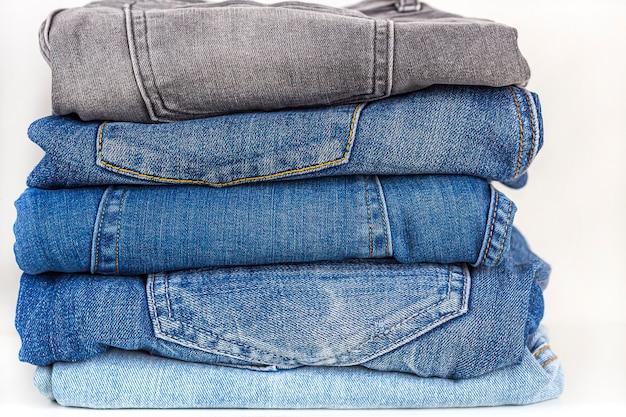Have you ever pulled out a sweater or pair of jeans from storage, only to be hit with an unpleasant odor? It’s a frustrating experience, especially when you were expecting your clothes to be fresh and ready to wear. But why do clothes start to smell after being stored? In this blog post, we’ll explore the common reasons behind this phenomenon and discuss some effective solutions to keep your stored clothes smelling fresh.
One possible reason for the musty smell is improper storage conditions. If you’re wondering how to store winter clothes in the garage or if it’s okay to store clothes in plastic containers, we’ll address these questions and more. Moisture and lack of ventilation can lead to mold and mildew growth, resulting in the unpleasant odor. Additionally, leaving clothes in the washer for too long before transferring them to the dryer can also contribute to musty smells.
But fret not! In this blog post, we’ll share tips on how to prevent and eliminate unpleasant odors from your stored clothes. We’ll discuss methods such as using vinegar in the washing machine, ensuring proper ventilation in storage areas, and keeping mold out of storage spaces. By implementing these techniques, you can say goodbye to musty-smelling garments and enjoy fresh clothes ready to be worn whenever you need them.
So, if you’re tired of dealing with smelly clothes straight out of storage, keep reading for practical insights and solutions to maintain fresh-smelling garments all year round.

Why Do Clothes Develop Unpleasant Odors After Being Stored
We’ve all experienced it at some point – the moment we eagerly retrieve clothes from long-term storage only to be met with an unpleasant odor that makes us wrinkle our noses in disgust. So, why do clothes start to smell after being stored? Let’s uncover the mysteries behind this musty phenomenon.
1. Bacteria: The Invisible Culprits
Deep down, our clothes are safe havens for a multitude of invisible bacteria. When we store our attire for an extended period, these pesky microorganisms seize the opportunity to thrive and multiply. As they feed on the sweat, skin cells, and oils left behind on our garments, they release unpleasant-smelling compounds known as volatile organic compounds (VOCs). Imagine the bacteria having a party, and the odor they produce is their funky soundtrack.
2. Lack of Air Circulation: The Stagnant Saboteur
Ever noticed how clothes left bunched up in a sweaty gym bag develop a distinct aroma reminiscent of a forgotten locker room? Stagnant air is the main culprit here, as it prevents proper ventilation and contributes to odor accumulation. When clothes are tightly packed and sealed away, moisture gets trapped, creating a breeding ground for odor-causing bacteria. It’s like giving those little stink-makers VIP access to their favorite dance floor.
3. Temperature and Humidity: The Climate Conundrum
Believe it or not, the surrounding environment plays a significant role in the olfactory fate of our stored clothes. High humidity levels provide the ideal conditions for mold and mildew growth, which can emit unpleasant odors onto our precious garments. Similarly, if clothes are stored in an excessively warm environment, the heat can accelerate bacterial activity, intensifying the stench. It’s like your clothes are having their own tropical vacation, but without the fruity cocktails and ocean breeze.
4. Residual Stains: The Funky Reminders
You may think that washing your clothes before stowing them away is enough to keep them smelling fresh, but not so fast! Even the tiniest residual stains or spills can wreak havoc on your nasal passages when left untreated. These stubborn remnants act as beacons to bacteria, attracting their attention and serving as an ongoing source of odor. It’s as if the bacteria are saying, “We’ll never let you forget that coffee spill from years ago!”
5. Fabric Composition: The Odor Magnet
Some fabrics have an unfortunate affinity for holding onto odors more than others. Synthetic materials, such as polyester or nylon, tend to be particularly prone to absorbing and retaining funky smells. They create a cozy environment for bacteria to take up residence and establish their own society of stench. It’s like these fabrics have a knack for collecting odors and keeping them under lock and key.
Now that we’ve unraveled the mysteries behind why clothes start to smell after being stored, it’s time to take action and prevent our clothes from becoming scent bombs. Ensure your stored garments have adequate ventilation, clean them thoroughly before packing them away, and consider using odor-absorbing products like activated charcoal or vinegar. With a little extra care, you can bid farewell to musty surprises and greet your favorite clothes with a breath of fresh air.

FAQ: Why Do Clothes Start to Smell After Being Stored
Welcome to our FAQ-style subsection where we address all your burning questions about why clothes start to smell after being stored. We understand the frustration of putting away your favorite clothes and then finding them reeking of an uninvited odor later on. But fret not! We’ve got all the answers you need to tackle this smelly situation. Let’s dive in!
How Do You Store Winter Clothes in the Garage
Storing winter clothes in the garage requires some precautions to keep them smelling fresh. Here are a few tips:
- Cleanliness is Key: Ensure your winter garments are freshly laundered before storing them. Any lingering odors will only intensify in a closed space.
- Air It Out: Give your winter clothes a breath of fresh air before storage. Leave them outside or near an open window to help eliminate any moisture or odors.
- Proper Packaging: Use airtight containers or vacuum-sealed bags to prevent moisture and pesky odors from creeping in. Don’t forget to label the containers for easy retrieval next winter!
Should I Rewash Clothes That Have Been Sitting in the Washer
Well, we wouldn’t recommend it. Here’s why:
- Stagnant Water Stinks: Clothes left sitting in the washer can become a breeding ground for funky odors. Consider re-running a rinse cycle with some vinegar to neutralize any lingering smells before drying them.
- Time for a Sniff Test: Give your clothes a whiff, as some might not need a full wash. Simply airing them outside can do wonders for eliminating light odors.
- Prevention Saves the Day: To avoid this issue altogether, try to promptly transfer your washed clothes to the dryer or hang them up to dry as soon as the cycle ends.
Is It OK to Store Clothes in Plastic Containers
Absolutely! Storing clothes in plastic containers can be a convenient and efficient way to prevent them from smelling. Here’s why it works:
- Moisture Barrier: Plastic containers provide a protective seal, keeping moisture at bay. Dampness is one of the major culprits behind those funky odors.
- Insect Invasion Defense: Plastic containers offer a sturdy shield against unwanted guests like moths, silverfish, or pesky bugs that could potentially feast on your precious garments.
- Easy Visibility: Transparent plastic allows you to easily identify the contents of each container, saving you from rummaging through a pile of mystery boxes.
Why Do My Clothes Smell After Sitting in the Closet
Ah, the case of the closet stench. Here’s what might be going on:
- Lack of Air Circulation: Clothes stored in a stuffy, poorly ventilated closet can develop odors due to trapped moisture and lack of fresh air. Consider leaving the closet doors slightly open or using a moisture-absorbing agent like charcoal or baking soda.
- **Dirty Closet: Your closet might be the culprit. Ensure that the closet itself is clean and odor-free by wiping down surfaces, vacuuming the floor, and regularly removing any old or unused items that could contribute to the smell.
- Time for a Wash: If your clothes already have an odor when you store them, it’s wise to give them a good wash before putting them away. Freshly laundered clothes have a much better chance of staying odor-free during storage.
Why Do Clothes Smell When Stored
Ah, the mystery of clothes turning stinky in storage! Let’s unveil the reasons:
- Lingering Odors: If clothes are not thoroughly cleaned before storage, any small odor, such as sweat or perfume, can intensify and become unbearable over time.
- Moisture Build-up: Moisture, whether from damp conditions or incorrect storage methods, can lead to musty odors. Make sure your clothes are completely dry before storing them, and use moisture-absorbing agents like silica gel packs or desiccants.
- Poor Ventilation: Lack of airflow and ventilation in storage spaces can contribute to musty smells. Consider using breathable storage bags or periodically opening containers to allow fresh air to circulate.
Did You Know
Keeping your clothes smelling fresh and clean involves some cunning techniques. So, here are some pro tips to keep those pesky odors at bay:
- Dry Before Storage: Moisture is the enemy. Ensure your clothes are completely dry before stashing them away.
- Fresh Air Treatment: Regularly air out your stored clothes. Give them a mini vacation by hanging them outside or near an open window.
- Aromatic Allies: Add a pleasant scent to your wardrobe by storing scented sachets or cedar balls alongside your clothes. They not only combat odors but also repel moths.
- Secret Ingredient – Vinegar: Adding a cup of white vinegar to your washer during a rinse cycle can help eliminate stubborn odors from clothes.
- Baking Soda Sorcery: Sprinkling some baking soda in your wardrobe or storage containers can absorb odors and keep everything smelling fresh.
We hope this FAQ-style subsection has provided you with valuable insights into why clothes start to smell after being stored and equipped you with useful tips to tackle this issue head-on. By following our advice and implementing proactive measures, you’ll no longer have to crinkle your nose when opening your wardrobe or storage containers. Say goodbye to unpleasant surprises and hello to fresh-smelling clothes all year round!